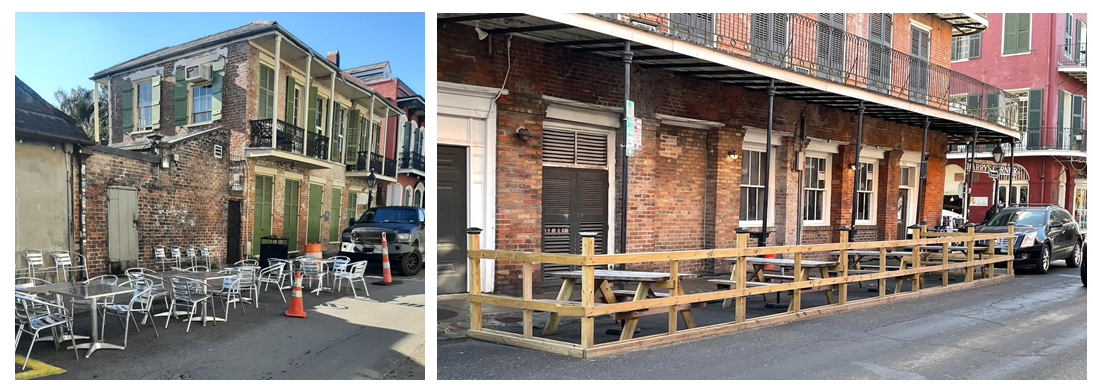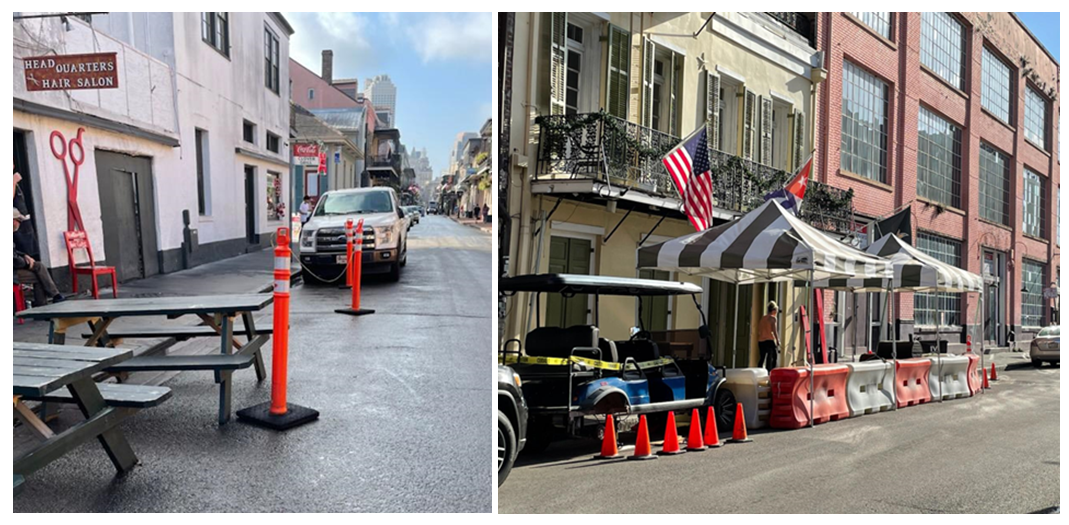
On Tuesday, April 26, the City Planning Commission will take up CZO recommendations to make the temporary parklet program a permanent fixture in New Orleans. While these outdoor business expansions might work in other areas of the city, we feel the issues concerning public safety, the privatization of public space, and aesthetic considerations have not been adequately addressed or enforced during the temporary program, and do not recommend including the French Quarter in any permanent plan.
Nine Reasons to end the Parklet Program:
- They were temporary: The COVID-19 pandemic clearly demonstrated the need for creative measures to assist small businesses and to allow expanded and socially distanced alternatives for New Orleanians’ dining options.
- They are no longer necessary: Currently, there are hundreds of dining options in the French Quarter and our growing visitor numbers show that street life is back.
- Increased commercial activity in residential areas: Many outdoor dining establishments are located in residential areas, some in grandfathered spaces where such commercial uses are otherwise no longer allowed. Any parklet in a residential zoning district represents an expansion of a non-conforming use which is prohibited by the Comprehensive Zoning Ordinance (CZO).
- Noise impacts: Outdoor dining and drinking establishments have shown, in the French Quarter, to significantly increase the noise impacts on adjacent residential uses.
- Privatization of Public Space: Outdoor dining involves a privatization of public space, such as sidewalks or streets. That is space, which is shared by many users for residential parking, loading and unloading, and passenger zones, has now been specifically designated for the private usage of a sole business entity.
- Inequitable: The parklet program does not address the inherent inequity that not all businesses have frontage on a parking lane. Those establishments that abut a vehicular lane are not eligible for the program.
- Public Safety & ADA Accessibility: Crowding and safety become an issue when establishments take over the narrow and crowded sidewalk that separates a business from its adjacent parklet dining area. In some situations this may make a difficult situation worse, with a variety of potentially negative effects for pedestrians, diners, and businesses – particularly when alcohol is being consumed by the vast majority! This is especially problematic for ADA accessibility.
- Aesthetic Considerations: They are unattractive. The existing parklets bear little resemblance to anything that could contribute to the historic “tout ensemble” of the French Quarter. Even if their designs were improved, the parklets will still mask and obscure our carefully preserved architecture. Vieux Carré property owners are held to the highest standards by the Vieux Carré Commission, which will have no authority on the installation of the parklets. Furthermore, the City has not reached out to the VCC or HDLC to weigh in on any designs!
- No history of city enforcement: There is little to no enforcement of the current parklet regulations. Some have been in operation for two years without a valid permit. Some have introduced exterior speakers and furniture/equipment on the sidewalk, including tents, which are specifically prohibited. There has been no effort to enforce any of these built-in regulations and nothing to suggest there will be in the future.
Parklets by the Numbers in New Orleans:
- Currently, approximately 40 parklet permits have been issued in the city.
- Eight were issued in the French Quarter and nine are currently operating.
- Two operate in the French Quarter without licenses.
- 65% of French Quarter parklets are in residentially zoned areas.
- There is only one other parklet in a residential zone operating outside of the French Quarter.


